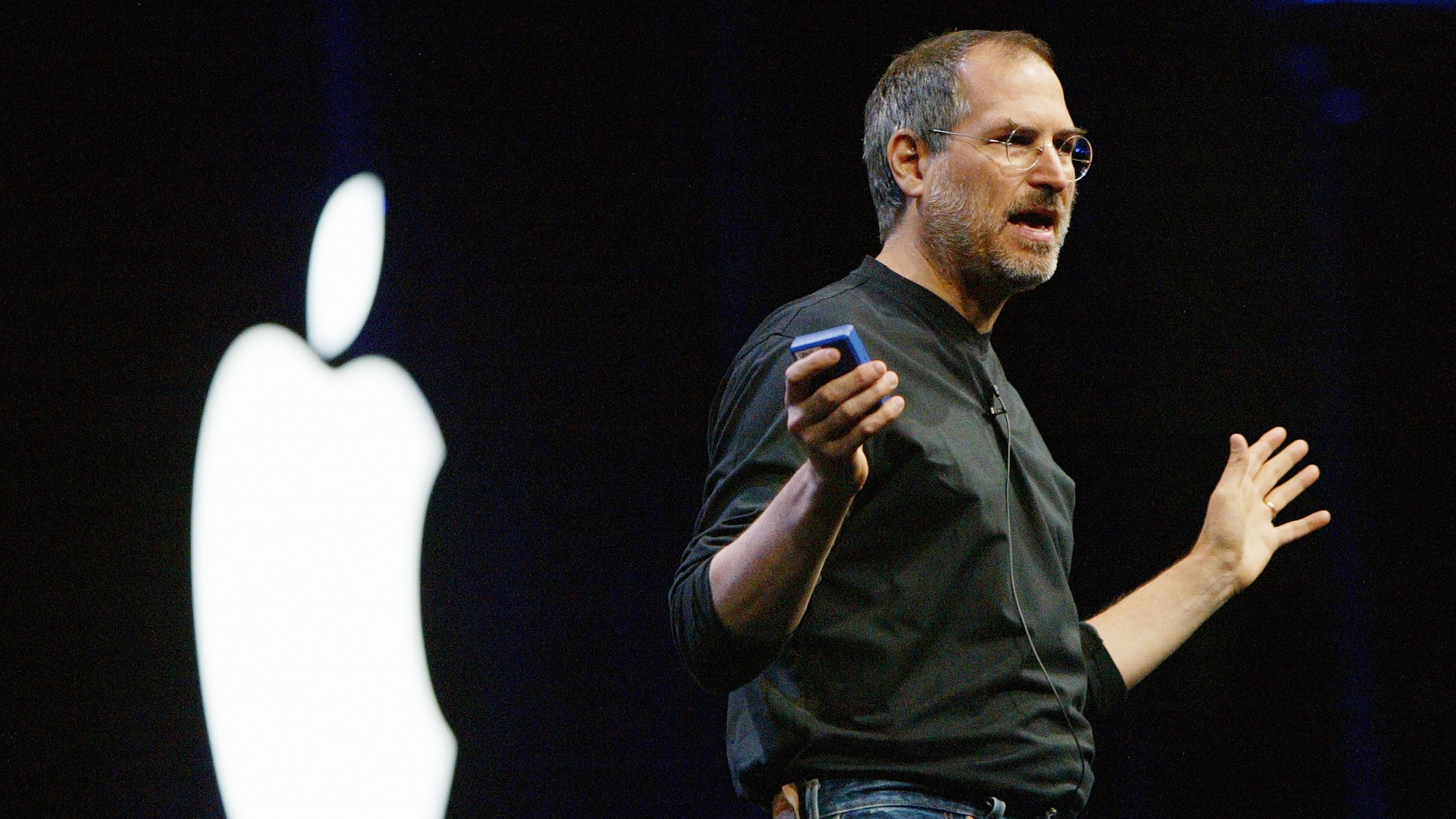Exposing Silicon Valley’s remote working hypocrisy
Why the world’s greatest disrupters are paradoxically clinging onto tradition


This article originally appeared in issue 26 of IT Pro 20/20, available here. To sign up to receive each new issue in your inbox, click here
Big tech companies have emerged as the biggest winners of the pandemic. While the chaos caused by lockdowns and stay-at-home orders severely disrupted the global economy (GDP decreased by 3.4% in 2020) technology companies have continued to report exceptional growth since the crisis began.
The so-called big five – Facebook, Amazon, Apple, Microsoft and Google – increased their market capitalisation at the end of 2020 by 52.8% year-on-year. These firms are now collectively worth almost $10 trillion, with growth fuelled largely by the worldwide shift to remote working and global organisations’ accelerated shift to cloud computing.
Despite major growth, sustained largely as a result of a surge in demand for their services, all while their own employees worked remotely, these companies have championed a return to the office at every turn. This has led to a series of awkward u-turns and policy reversals. Many companies, nevertheless, still insist their workers should ready themselves to work in the office up to three days a week once the pandemic is over.
Many tech firms claim a return to the office is essential for collaboration and socialising among employees, but there are likely a number of other factors at play – including investment in office space. Some experts believe the mixed messages centre around issues of workplace trust, too. Although they powered the global remote working shift, tech CEOs may paradoxically believe staff working from home aren’t putting in a full day’s shift; work can only be carried out sufficiently if employees are in a physical workplace, with bosses peering over their shoulders.
In keeping with tradition
Google recently announced it’ll spend £730m to expand its office footprint in London, while Apple CEO Tim Cook sent out a memo last June saying employees should plan to work in an office at least three days a week, despite complaints. Although Apple’s plans have since been put on hold due to the spread of the Omicron variant in the US, he said at the time: “For all that we’ve been able to achieve while many of us have been separated, the truth is that there has been something essential missing from this past year: each other.”
This sentiment has been echoed throughout the industry; Netflix boss Reed Hastings, for instance, simply claims he sees no positives in remote working, while Google CEO Sundar Pichai claims that seeing workers in offices fills him with “optimism”.
Sign up today and you will receive a free copy of our Future Focus 2025 report - the leading guidance on AI, cybersecurity and other IT challenges as per 700+ senior executives

Hastings (pictured) has derided the notion of remote work as a “pure negative”
RELATED RESOURCE

Four strategies for building a hybrid workplace that works
All indications are that the future of work is hybrid, if it's not here already
FREE DOWNLOAD
This flies in the face of the benefits we’ve seen as a result of remote working, which has itself been fuelled by the same companies and the cloud-based tools they’ve pushed to businesses. The majority (63%) of employees report feeling more productive as a result of working remotely, for example, while most workers also report a better work-life-balance. Many also applaud the gains made on disability inclusion, and on helping women to close the longstanding gender gap.
Benefits also extend far beyond the business, Callum Adamson, CEO and co-founder of work-life balance platform Distributed tells IT Pro. This is because it’s paved the way for globally distributed teams which, in turn, enables more efficient asynchronous working. “Cultivating teams distributed around a country, or beyond, means each member spends their money in the location they’re based in, which contributes to better wealth distribution,” he explains. “Investing in the global economy, rather than concentrated urban centres, can also improve local infrastructure such as education and healthcare. The solution to solving global inequality is, of course, far more complicated, but we cannot ignore the potential.”
One rule for them
Given widespread gains, why are the world’s greatest disruptors clinging onto tradition? It all comes down to culture, according to Molly Johnson-Jones, CEO of flexible jobs platform Flexa. “If senior leaders trust their staff and want to boost retention, they’re embracing genuine flexible work – choice over where, when and how individuals get the job done,” she tells IT Pro. “There’s no one-size-fits-all solution when it comes to flexible work, and different companies will have different ‘core’ expectations of how things need to be done – and that’s absolutely fine. What’s not fine is imposing a blanket office policy on all staff and expecting them to go along with it.”
Adamson agrees, adding the inherent concern with remote working has always been about trust: “It’s hypocritical and quite frankly insulting to these companies’ workers, who have proven to their bosses time and again that they’re both capable and willing to work efficiently and effectively from home,” he says. “Taking that freedom away from them risks reverting back to old stereotypes of not trusting employees and not giving them credit to work effectively and efficiently – like adults – without being micromanaged.”
This issue of trust has been longstanding in the tech industry. Google, for example, recently found itself in hot water after allegedly terminating the contracts of employees who spoke out against its ties with US immigration agencies. This reportedly moved Google’s head of HR Eileen Naughton to step down. The late Apple CEO Steve Jobs, too, infamously fired people without severance pay while he was at Pixar, and similarly didn’t award equity to those who worked at Apple pre-IPO.

It was widely reported that Jobs (pictured) fired people without severance pay, contributing to feelings of mistrust
Many businesses believe IT is the exception to the rule when it comes to staff working productively outside of the office. Last year’s massive Facebook outage, for example, is a case study many employers will now use to demand a return to the workplace, according to COO of cyber security recruitment consultancy Focus on Security, Jamal Elmellas.
“Much of the delay when responding to the configuration update that went so badly wrong was blamed on the fact only 25% of its staff were in the office,” he says. “Insiders claim the delay was caused because the workers who could fix the issue were effectively locked out of the data centre. Unfortunately, the Facebook story will be used for some time as an example of why IT is the exception to the rule when it comes to remote working when, in fact, it should be a lesson in the need to adjust all aspects of the business, including incident response.”
The Big Tech resignation
If tech firms continue to insist on a return to the office, they risk losing skilled workers, who’ll be tempted to work for a competitor affording stronger remote working rights. Twitter, for example, announced staff didn’t need to return to the workplace, while Slack is pursuing a permanent “virtual first” strategy. This stands in contrast with a number of Silicon Valley giants that have persisted with return-to-work orders.
Indeed, most workers plan to leave their current role if they’re not offered flexibility, Johnson-Jones tells IT Pro. “That’s a huge amount of people who won’t put up with a return to pre-March 2020 working practices,” she says. “The minority of firms that aren't acknowledging this are creating a staffing rod for their own back at a time of global labour shortages.”
“Rather than acting as a magnet for talent, this could negatively impact businesses’ ability to attract skilled workers,” Adamson adds. “Other businesses shouldn’t see a return to the office as a template for success. Having an office space is a pre-pandemic relic that, if anything, hinders employee experience and business success.
“For tech companies that rely on expert tech and developer skills, this means increasing office investment and mandating attendance could well backfire, restricting access to the best technically skilled workers across the UK and around the world. It undermines a company’s efforts to be an outstanding employer and tech industry leader.”
It’s unlikely the so-called big five will openly explain why they were among the first to march employees back to offices. It’s clear, however, there are various factors at play, be it a lack of trust in remote workers or the long-disproved belief that staff can only work at their full capacity when they’re surrounded by their colleagues. No matter the reason, the hypocrisy is clear; while they’ve generated billions of dollars due to remote working – which has afforded their employees a better work-life balance and, in most cases, improved productivity – they’re failing to learn the lessons, with potentially dramatic consequences.
Carly Page is a freelance technology journalist, editor and copywriter specialising in cyber security, B2B, and consumer technology. She has more than a decade of experience in the industry and has written for a range of publications including Forbes, IT Pro, the Metro, TechRadar, TechCrunch, TES, and WIRED, as well as offering copywriting and consultancy services.
Prior to entering the weird and wonderful world of freelance journalism, Carly served as editor of tech tabloid The INQUIRER from 2012 and 2019. She is also a graduate of the University of Lincoln, where she earned a degree in journalism.
You can check out Carly's ramblings (and her dog) on Twitter, or email her at hello@carlypagewrites.co.uk.
-
 Hackers are using LLMs to generate malicious JavaScript in real time
Hackers are using LLMs to generate malicious JavaScript in real timeNews Defenders advised to use runtime behavioral analysis to detect and block malicious activity at the point of execution, directly within the browser
-
 Developers in India are "catching up fast" on AI-generated coding
Developers in India are "catching up fast" on AI-generated codingNews Developers in the United States are leading the world in AI coding practices, at least for now
-
 Infosys co-founder Narayana Murthy called for a 70 hour week last year — now he says that’s not enough
Infosys co-founder Narayana Murthy called for a 70 hour week last year — now he says that’s not enoughNews Murthy thinks longer hours akin to China’s '996' approach are the key to success
-
 Microsoft could be preparing for a crackdown on remote work
Microsoft could be preparing for a crackdown on remote workNews The tech giant is the latest to implement stricter policies around hybrid working without requiring a full five days in the office
-
 IT professionals aren’t budging on flexible work demands – and more than half say they’ll quit if employers don’t meet expectations
IT professionals aren’t budging on flexible work demands – and more than half say they’ll quit if employers don’t meet expectationsNews Analysis from Randstad shows 40% of UK-based IT pros have quit over a lack of flexible work options, while 31% of workers globally have done the same.
-
 'The tide seems to be turning towards office attendance': 64% of hybrid business leaders want staff back in the office – but many worry that enforcing RTO mandates will drive employees away
'The tide seems to be turning towards office attendance': 64% of hybrid business leaders want staff back in the office – but many worry that enforcing RTO mandates will drive employees awayAnalysis Many UK business leaders want their staff back in the office more frequently, but they’re scared to implement return to office (RTO) mandates in fear of worker revolts.
-
 Employees are dead set on flexible working arrangements – three quarters would turn down a role that didn't offer hybrid options as work-life balance becomes more important than pay
Employees are dead set on flexible working arrangements – three quarters would turn down a role that didn't offer hybrid options as work-life balance becomes more important than payNews New research shows workers are increasingly demanding flexible working arrangements from employers.
-
 Nearly half of tech workers are seeking new roles – declining employee benefits and reduced flexible working options have staff looking elsewhere
Nearly half of tech workers are seeking new roles – declining employee benefits and reduced flexible working options have staff looking elsewhereNews While salaries are rising for tech workers, other benefits are in decline, leading to a fall in job satisfaction
-
 Untethered: How CIOs and CISOs are paving the way for the new hybrid workforce
Untethered: How CIOs and CISOs are paving the way for the new hybrid workforceWhitepaper Effective techniques to transition from exposed legacy infrastructure to an effective zero trust strategy
-
 Unified endpoint management and security in a work-from-anywhere world
Unified endpoint management and security in a work-from-anywhere worldWhitepaper Learn how to converge endpoint management and security processes and systems to drive efficiency and reduce risk
